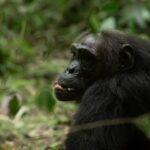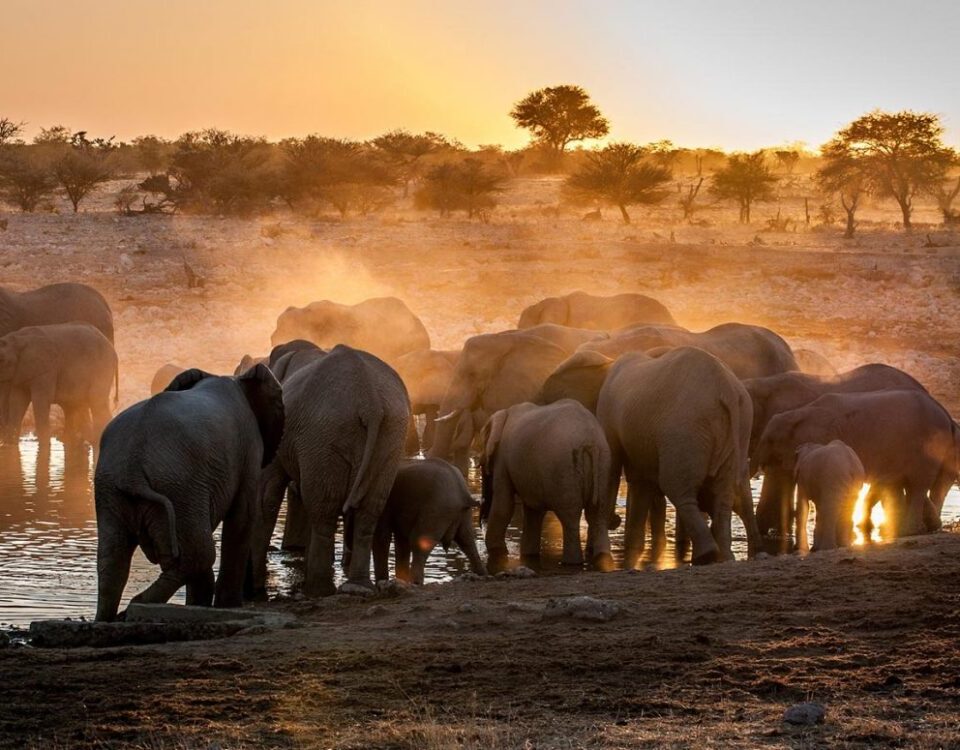
What Is the Age Limit for Chimpanzee Trekking?
July 2, 2025
How Old Do You Have to Be to Gorilla Trek in Uganda?
July 2, 2025Is Chimpanzee Trekking Ethical?
Is Chimpanzee Trekking Ethical? is a central question for thoughtful travelers on Uganda safari or Rwanda safari adventures. As a dynamic wildlife safari activity, chimpanzee tracking offers extraordinary encounters—already part of bucket‑list journeys alongside Gorilla Trekking Rwanda or Uganda Gorilla Trekking. Yet increasing awareness around responsible tourism means we must address ethical considerations head‑on from the moment we plan the safari. In this article by Wild Village Safaris, we explore the ethics of chimpanzee trekking through conservation, well‑being, cultural respect, and the potential to combine this magical experience with Uganda Gorilla Trekking for a more impactful Rwanda Tour.
Conservation at the Core
Protecting Chimpanzees Through Ethical Tourism
When addressing Is Chimpanzee Trekking Ethical?, the first pillar is conservation. Guided chimp trekking in protected areas like Kibale in Uganda or Nyungwe in Rwanda operates under stringent rules: limited daily permits, minimum distances, health protocols, and time restrictions. These laws safeguard chimpanzees from disease transmission, stress, and habitat disruption. Revenue from permits is directly funneled into anti‑poaching patrols, forest protection, and local community initiatives. This ethical model transforms tourism into a potent conservation force—daily treks become more than an adventure; they become lifelines supporting chimpanzee survival and forest preservation across Uganda safari and Rwanda Tour regions.
Primate Welfare & Responsible Interaction
Balancing Wildlife Observation with Primate Comfort
A key aspect when considering Is Chimpanzee Trekking Ethical? is prioritizing the comfort and dignity of chimpanzee groups. Wild chimpanzees live in complex social structures and are sensitive to disturbance. Ethical trekking ensures small, quiet groups, health measures like masks, and a strict one‑hour viewing limit—all to minimize human impact and maintain natural behavior. Guides trained in chimpanzee observation patterns ensure respectful interaction. These measures demonstrate ethical intent in wildlife safari design and foster meaningful moments that honor chimpanzees’ natural rhythms, rather than disrupting them.
Cultural Integrity & Community Engagement
Respecting Local Heritage While Supporting Conservation
Answering Is Chimpanzee Trekking Ethical? also means examining human dimensions. Many chimp and gorilla habitats border forest‑dependent communities who rely on ecotourism for livelihoods. Wildlife safaris that include cultural visits—like forest‑dwelling Batwa in Uganda or artisan groups in Rwanda—help ensure economic benefits stay local. Visitors learn traditional conservation practices, craft skills, and village life. This respectful cultural exchange transforms safari storytelling by connecting primate welfare with community health. It’s this interwoven approach that defines ethical wildlife safari design—honoring people and wildlife together.
Scientific Research & Long-Term Impact
Trekking as Conservation and Learning
Another vital aspect of Is Chimpanzee Trekking Ethical? lies in its scientific value. Many protected chimpanzee troops are part of long‑term studies on their social behavior, genetics, and health. Trekking programs in places like Kibale support data collection—behaviors, reproductive cycles, troop dynamics—which inform conservation planning. Visitors become part of that learning journey; hearing about research during the trek deepens appreciation for chimpanzees’ cognitive and social complexity. This blend of tourism and scientific stewardship turns every trek into a meaningful contribution to wildlife understanding, not just a travel spectacle.
Health Protocols & Safety
Safeguarding Primates and People Through Ethical Trekking
A core consideration of Is Chimpanzee Trekking Ethical? is health safety. Chimpanzees are remarkably susceptible to human diseases—respiratory infections, influenza, even measles. To mitigate risks, strict protocols require trekkers to wear masks, maintain a minimum distance of 7 meters, and undergo health screenings. Use of hand sanitizer and brief group durations provide added safeguards. Even COVID‑era measures have strengthened the ethical commitment of wildlife safari operations. These layers of precaution highlight responsible tourism—keeping both humans and chimpanzees healthy.
Ecosystem Sustainability
Minimizing Footprint While Maximizing Impact
Ethical chimpanzee trekking in wildlife safari contexts goes beyond animal interaction—it extends to environmental resilience. Trails are carefully managed to prevent erosion, litter is prohibited, and fires are restricted. Parcels of forest remain untouched, and revenues support reforestation and habitat corridors. Trekking is conducted in rotation to avoid frequent troop disturbances. When travelers ask Is Chimpanzee Trekking Ethical?, this holistic approach shows how tourism can fund, rather than fragment, fragile ecosystems that sustain chimpanzees, gorillas, and countless species.
Combining Primate Encounters
Enhancing Safari Ethics Through Multi‑Species Experiences
For safari-goers who ask Is Chimpanzee Trekking Ethical?, combining chimpanzee tracking with Uganda Gorilla Trekking reinforces conservation messaging and amplifies eco‑impact. Visitors witness two of Africa’s most iconic primate species, each with unique habits, lifespans, and conservation challenges. Budget‑permitting, bundling Chimpanzee Tracking with Gorilla Trekking Rwanda or Uganda Gorilla Trekking supports broader conservation goals and provides a deeper, comparative perspective on primate ecology. This synergy excels in ethical wildlife safari design: two powerful experiences, one strong conservation mission.
Cultural Complement
Enriching Safari with Human Stories
A wildlife safari that asks Is Chimpanzee Trekking Ethical? becomes truly meaningful when woven with cultural stories. Wild Village Safaris includes village visits, craft workshops, music, and dance—connecting guests to human cultures that share chimpanzee habitats. These interactions promote mutual respect: tourism protects wildlife and supports community development. After chimp trekking or gorilla trekking, visitors can reflect on nature alongside local heritage—highlighting the symbiotic relationship between ecological and cultural conservation.
Challenges & Ethical Framework
Navigating Realities of Tourism and Conservation
Honest assessments of Is Chimpanzee Trekking Ethical? acknowledge real concerns: potential overcrowding, permit scarcity, infrastructure strain, and cultural commodification risks. Wildlife safari operators mitigate this by managing group flow, ensuring local leadership, and reinvesting in communities and forests. Ethical trekking isn’t a static policy—it’s an evolving commitment to adaptation and improvement. When trekkers choose operators like Wild Village Safaris, they know each journey also supports community development, habitat restoration, and long-term primate protection.
Conclusion: A Responsible Yes
Is Chimpanzee Trekking Ethical? – when done with care, respect, conservation awareness, and community support—the answer is yes. Wildlife safaris in Uganda and Rwanda increasingly follow frameworks modeled after Gorilla Trekking Rwanda and Uganda Gorilla Trekking: combining ecological protection, cultural integrity, scientific exploration, and community empowerment. Travelers seeking meaningful wildlife safari experiences can be confident that a carefully designed chimp trek is more than an adventure—it’s a step toward protecting our closest cousins and their forest homes for generations to come.




